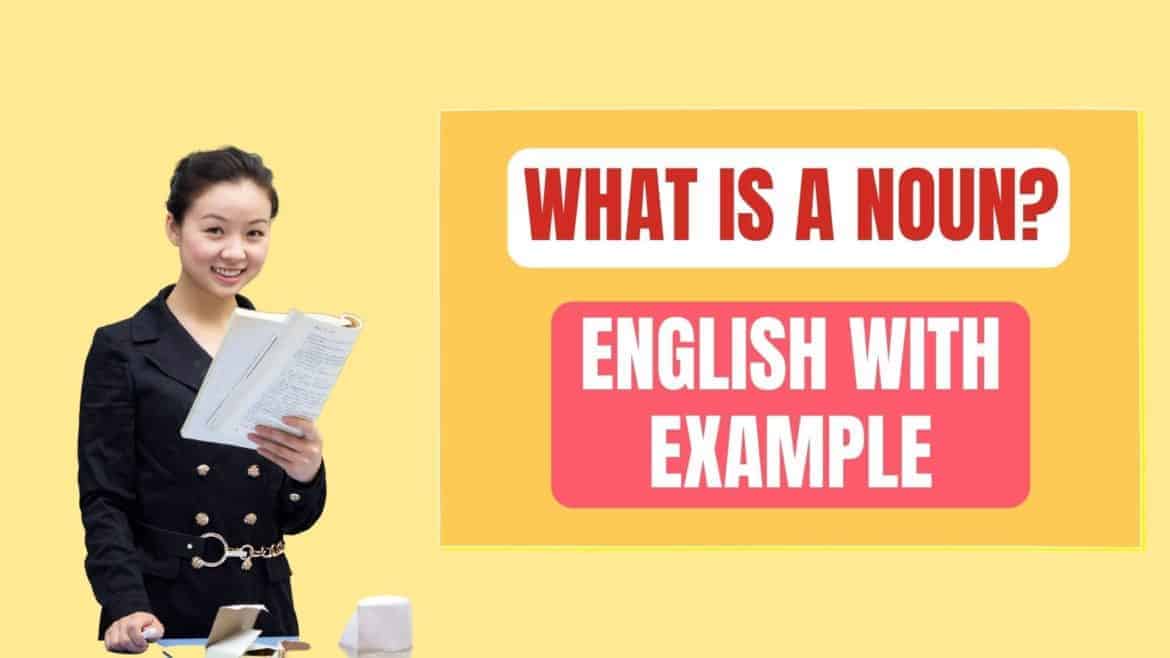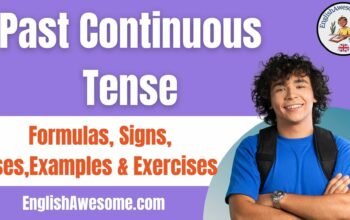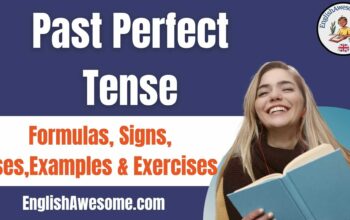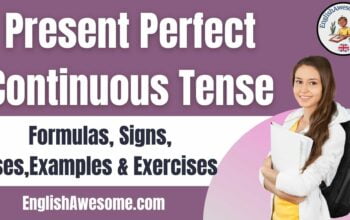What is a Noun? Nouns in English are not merely objects that are mentioned directly or indirectly to perform an action or be affected by the action in a sentence but also closely related to verb conjugation. In this lesson, we will learn how to recognize nouns, classify them and use the correct form of nouns.
⏩ Sign Up to Get Bonus
Let’s learn about it with English tivi right now.
You might also like: ALL the English Grammar Basics You Need
Function of Nouns
Nouns in English are words used to refer to people, things, things, places… It has the following functions:
1. As the subject:
Her children are very obedient.
2. As a direct object:
Peter likes chocolate.
3. As an indirect object:
John gave Peter a red pen. John gave Peter a red pen.
4. As a complement of the subject: after the verbs “to be” and “become.”
My sister is a journalist.
5. As a complement for the object:
People consider him a teacher.
Classification of Nouns
Nouns can be divided into four categories: common nouns, proper nouns, abstract nouns, and collective nouns.
A. Common Nouns
1. Common nouns are nouns that indicate people, things, and places
- For example: dog, house, picture, computer.
2. Common nouns can be written in the singular or plural form
- Example: A dog or dogs
3. Common nouns do not capitalize the first letter.
B. Proper Nouns
1. Proper nouns are proper names to call each thing or object, such as a person's name, place name, company name, etc.
- For example: Microsoft, Mr. David Green, La Thanh street, Greentown Hospital, Town House Hotel, City Park…
2. Attention: proper nouns must capitalize the first letter.
C. Abstract Nouns
1. An abstract noun is a generic noun that names an idea or a quality. Abstract nouns are not usually seen, smelled, touched, or tasted.
- For example: joy, peace, emotion, wisdom, beauty, courage, love, strength, character, happiness, personality
2. Abstract nouns can be singular or plural.
3. Abstract nouns can be countable or uncountable.
D. Collective Nouns
A collective noun that names a group or collection of people, places, or things.
- Example: crew, team, navy, republic, nation, federation, herd, bunch, flock, swarm, litter
You might also like: Verb forms: V-ing and to V
Countable and Uncountable Nouns
What is Countable and Uncountable Nouns?
The noun that plays the role of the subject in the sentence needs to be determined exactly whether it is a singular or plural, countable or uncountable noun to conjugate the verb accordingly.
1. Countable noun: A noun that can be used with numbers, so it has 2 forms, singular, and plural. In the singular form, it is used with a, an or the.
- For example: a book, two books, …
2. Uncountable nouns: Can't be used with numbers, so it has no singular or plural form. It cannot be used with a, an and only in some special cases such as milk. You cannot say “one milk”, “two milks” … (Some uncountable substances can be contained in containers, packaging… countable like one glass of milk).
Note:
+ Some countable nouns have special plural forms such as: person – people; child – children; tooth – teeth; foot – feet; mouse-mice…
+ Some countable nouns have the same singular/plural form, distinguished only by having “a” and not having “a”: an aircraft/ aircraft; a sheep/ sheep; a fish/ fish.
+ Some uncountable nouns such as food, meat, money, sand, water … are sometimes used as plural nouns to indicate different forms and types of that material.
- This is one of the foods that my doctor wants me to eat.
+ The noun “time”, if used to mean “time”, is uncountable, but when used to mean “time” or “number of times” is a countable noun.
- You have spent too much time on that homework. (Time, uncountable)
- I have seen that movie three times before. (Number of times, countable)
Countable and Uncountable Nouns List
Countable and Uncountable Nouns Table
| Countable Nouns | Uncountable Nouns |
| a(n), the, some, any | the, some, any |
| this, that, these, those | this, that |
| none, one, two, three,… | none |
| many a lot of a [large / great] number of (a) few fewer… than more… than | much a lot of a large amount of (a) little less… than more… than |
Some uncountable words you should know:
| Sand | Money | Information | Physics |
| Food | News | Air | Mathematics |
| Meat | Measles | Mumps | Politics |
| Water | Soap | Economics | Homework |
Note:
+ “Advertising” is an uncountable noun, but “Advertisement” is a countable noun, indicating a specific advertisement.
There are too many advertisements during TV shows.
+ Collective nouns can be singular or plural. They are often used with singular verbs because the group works together as a unit. A collective noun goes with a plural verb when the part of the group acts as an individual.
Our team is practicing three nights a week. => The team is operating as a unit.
The team were talking among themselves. => Their members are active as individuals.
Noun Practice Exercises with Answers
1: A place where people eat.…………………
- Bathroom
- Kitchen
- Dining room
2: There are five ……………….. in the picture.
- sheep
- sheeps
- sheepes
3: Please give me that…………………
- book
- books
- books
4: Please keep your hands an……………….. inside the car.
- feet
- foots
- foot
- footes
5: The ……………….. stood on boxes to see the parade.
- child
- childs
- children
- childrens
6: You should place the ……………….. and spoons to the left of the plates.
- knifes
- knives
- knife
- knifes
7: Are the ……………….. chasing the other farm animals?
- geese
- gooses
- goose
- gooses
8: All birds are very good at building their………………..
- nestes
- nest
- nests
- nestoes
9: Donna and Doug are planning to sell all their possessions and move to Maui in order to become beach……………….. .
- bumes
- bums
- bum
- bumoes
10: We ate both ……………….. .
- apple
- appleoes
- apples
- Applese
11: Enter is a/an……………..
- Person
- Thing
- Idea
- Place
- not noun
12: Sunflower is a/an ………………..
- person
- thing
- idea
- place
- not noun
13: Freedom is ………………..
- Collective nouns
- Abstract nouns
14: London is ………………..
- Abstract nouns
- Collective nouns
15: Law is ………………..
- Abstract nouns
- Collective nouns
16: Forgiveness is a/an ………………..
- Person
- Thing
- Idea
- Place
- not noun
17: Three ……………….. swam in the river.
- fish
- fishs
- fishes
- fishes
18: Marbles is a/an ………………..
- Person
- Thing
- Idea
- Place
- not noun
19: Weather is:
- Countable nouns
- Uncountable nouns
20: Woman is:
- Common nouns
- Proper nouns
Read more: English Grammar
Noun Exercises with Answers
1: A place where people eat.…………………
- Bathroom
- Kitchen
- Dining room
2: There are five ……………….. in the picture.
- sheep
- sheeps
- sheepes
3: Please give me that…………………
- book
- books
- books
4: Please keep your hands an……………….. inside the car.
- feet
- foots
- foot
- footes
5: The ……………….. stood on boxes to see the parade.
- child
- childs
- children
- childrens
6: You should place the ……………….. and spoons to the left of the plates.
- knifes
- knives
- knife
- knifes
7: Are the ……………….. chasing the other farm animals?
- geese
- gooses
- goose
- gooses
8: All birds are very good at building their………………..
- nestes
- nest
- nests
- nestoes
9: Donna and Doug are planning to sell all their possessions and move to Maui in order to become beach……………….. .
- bumes
- bums
- bum
- bumoes
10: We ate both ……………….. .
- apple
- appleoes
- apples
- Applese
11: Enter is a/an……………..
- Person
- Thing
- Idea
- Place
- not noun
12: Sunflower is a/an ………………..
- person
- thing
- idea
- place
- not noun
13: Freedom is ………………..
- Collective nouns
- Abstract nouns
14: London is ………………..
- Abstract nouns
- Collective nouns
15: Law is ………………..
- Abstract nouns
- Collective nouns
16: Forgiveness is a/an ………………..
- Person
- Thing
- Idea
- Place
- not noun
17: Three ……………….. swam in the river.
- fish
- fishs
- fishes
- fishes
18: Marbles is a/an ………………..
- Person
- Thing
- Idea
- Place
- not noun
19: Weather is:
- Countable nouns
- Uncountable nouns
20: Woman is:
- Common nouns
- Proper nouns



Conclusion
Above is the theory of nouns in English and practical exercises that English tivi has synthesized. Please share this article if it was useful to you, and review the knowledge when you need it!
Subscribe to the English TV channel on Youtube to improve your English skills!





